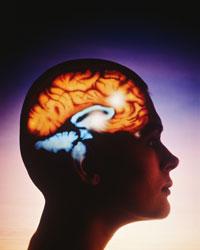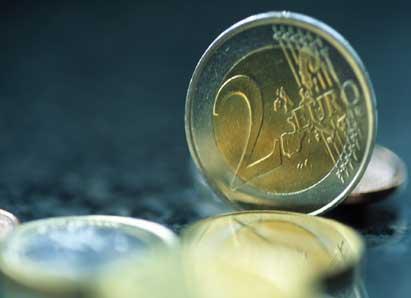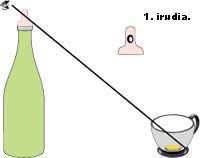Brain does not like headaches
2001/12/16 Mendiburu, Joana - Elhuyar Zientziaren Komunikazioa

The introduction of the euro worries many people because the calculation capacity of the human being is limited. No one will get rid of the calculations and, if all conversions are not learned from memory, it is advisable that the neurons get to work and get formed. But why do we calculate it so badly? It's not a simple question, but since scientists don't like to let the questions hang, some theories have been published.
Several calculations, several considerations
Before we start talking about the calculations, we should define what we are talking about. Finding a path, like adding, even if it belongs to another category, is calculation. The first example is called abstract calculus and the second numerical calculus.
In computing, regardless of whether the symbols are numeric or not, all operations performed with the symbols are defined as calculation. Put the words of a list in alphabetical order, distribute the red and black cards of the card game in two strokes, reduce a size image... all are calculations and the computer does all in short and without errors. To perform this type of tasks, the computer encodes the information with the following numbers 0 and 1.

The brain of man also carries out operations, such as the realization of a dialogue, the realization of a work of art, the creation of a story... These operations are performed by neurons exchanging chemical messages. Probably, if you look more closely, brain function is based on basic calculations.
Starting to compare the brain to the computer, it seems essential to compare the power of both. The brain performs between 1013 and 1019 basic operations per second. Even if it seems to be a lie, up to 30 years there will not be computers with as much power as the human brain, that is, a computer capable of doing so many basic calculations. But the brain, despite its enormous ability to make abstract calculations, is quite poor to make numerical calculations.
Consequently, it can be said that there are two "devices" for processing information. On the one hand, a biological brain with basic compounds of great power, but quite limited for numerical calculations. And, on the other hand, computers that, although less powerful, are able to add in an instant, factor the numbers of hundreds of figures and classify thousands of words.
Architecture is the key

The human brain is a calculation "device" with many specialties. The computer is based on a universal calculation core. In addition, marginal systems are incorporated to accelerate repetitive operations. At the moment the human brain can not be done, so we are obliged to live with such little ability to calculate. When performing the calculations only some parts of the brain are activated, which shows the inability to perform two parallel exercises.
The evolution of millions of years has improved the capabilities of the brain, but the stable structure of the brain leaves no hope that great changes will occur. Memorizing the agenda, checking bank accounts by heart, finding a complicated path and, now, distributing pesetas or pounds in euros are some of the operations that delimits the structure of the brain.
The society created by man is numerical and informational and the brain only adapts to the operations to perform at a high cost. Evolution has gone through other ways and has created really complex mechanisms such as the visual system. But the brain's ability to calculate has not improved much. Therefore, we are obliged to fill with calculators and computers the office, the home and even the bag.
The case of fascinating calculators
It is evident that the brain has great difficulties to perform well the calculations. But, however, the tricks are tricks, there are people with great capacity to memorize long and complicated calculations. One study analyzed the brains of a person with no extra calculation skills and the great calculator Rüdiger Gamm.

As has been seen, by doing long and complicated calculations on the head, in most people we activate some parts of the left hemisphere of the brain, which are corresponding to the memory of the work. In these places intermediate results responses are stored, but this memory has a very low capacity and the new information immediately removes the old one.
For his part, Rüdiger Gamm activates not only the memory of work, but also episodic memory. This memory lasts longer and thanks to it, for example, we remember things that were done on the eve or the same morning.
The authors of the research therefore consider that more than skillful estimators are men of good memory. Alexander Aitken (1895-1967) XX. One of the most fascinating calculators of the nineteenth century, for example, studied by heart the decimal 707 of | and discovered that from 528 they were wrong, learned new decimals up to 1,000. Although they say that he did not have a special calculation capacity, he did not have a weak memory afterwards!
Published in 7k.

Gai honi buruzko eduki gehiago
Elhuyarrek garatutako teknologia






